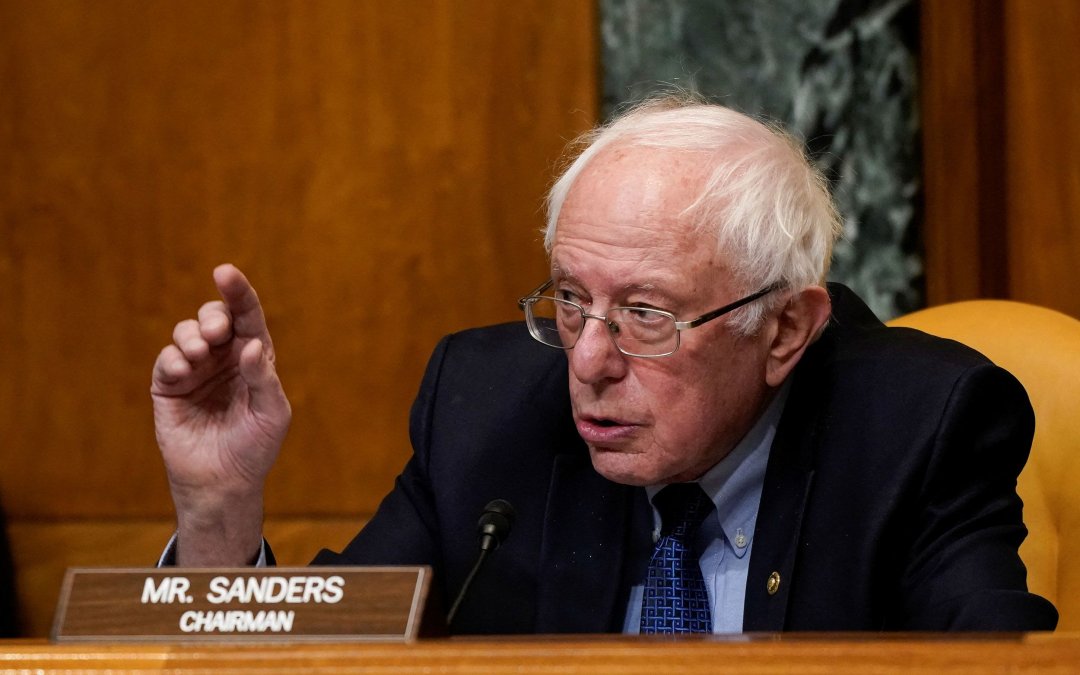WASHINGTON – The nomination for Dr. Monica Bertagnolli, Biden’s pick to lead the National Institutes of Health, cleared the Senate Health, Education, Labor and Pensions Committee on Wednesday despite Chairman Sen. Bernie Sanders’ (I-Vt.) opposition after several Republicans stepped forward in support.
“I like her, but I think this is a moment where we need leadership at the NIH which is really prepared to take on the greed of the pharmaceutical industry, lower prescription drug prices in America and move the NIH in a very, very different direction,” Sanders said before the vote. The Vermont senator announced in a statement on Tuesday that he would be voting “no” on Bertagnolli, the director of the National Cancer Institute who was nominated to lead the NIH by President Biden in April.
The 15-6 tally clears the way for a full Senate vote on Bertagnolli’s nomination and brings her one step closer to filling the position after a hectic process. It has been over 10 years since a nominee for this role has been questioned by the committee before voting on their confirmation, speaking to the polarization of health care issues in the U.S. The NIH has been without a director for nearly two years since Dr. Francis Collins retired in Dec. 2021.
“My strong belief is that the American people understand that our health care system is totally broken and totally dysfunctional,” Sanders said, referring to medical workforce shortages and affordability concerns. Medical experts have blamed the U.S.’s falling life expectancy to health care access issues.
In last week’s committee hearing, Bertagnolli affirmed her commitment to drug affordability but refused to say whether she would meet Sanders’ demands for the NIH to use march-in rights: a provision that would allow government interference surrounding the pricing of medications developed with any amount of federal funding as a means to lower costs.
Leading Republicans, including Ranking Member Bill Cassidy (R-La.), applauded Bertagnolli on this measure.
“I appreciate her refusal to commit to extreme and counterproductive drug pricing policies like march-in rights and reasonable pricing clauses,” Cassidy said. The senator, who is a physician, cautioned Bertagnolli on fetal tissue research, emphasizing expectations for the NIH to comply with congressional oversight investigations on the topic.
Sanders, who caucuses with Democrats, previously delayed Bertagnolli’s nomination hearing over disappointment surrounding the Biden administration’s lack of action on drug pricing. It was ultimately the White House’s $326 million deal with Regeneron, which promises low costs for a potential COVID-19 treatment, that convinced Sanders to schedule Bertagnolli’s hearing.
Earlier this week, the Vermont senator sent a letter to the Health and Human Services Department urging an investigation into an NIH-backed patent license for a cervical cancer treatment. Sanders’ letter, released on Monday, said the treatment “could potentially be worth hundreds of millions, if not billions, of dollars” for the “obscure company,” signaling further concerns about the Bertagnolli vote.
Republican Sens. Mike Braun (R-Ind.), Ted Budd (R-N.C.), Markwayne Mullin (R-Okla.), Rand Paul (R-Ky.) and Tommy Tuberville (R-Ala.) also voted against Bertagnolli. Politico reported on Tuesday that Sens. Mitt Romney (R-Utah) and Susan Collins (R-Maine) intended to vote “yes,” enough to move Bertagnolli forward along with the committee’s Democratic support.
The full Senate will vote on Bertagnolli’s position once Majority Leader Chuck Schumer (D-N.Y.) brings her name to the floor for consideration.


